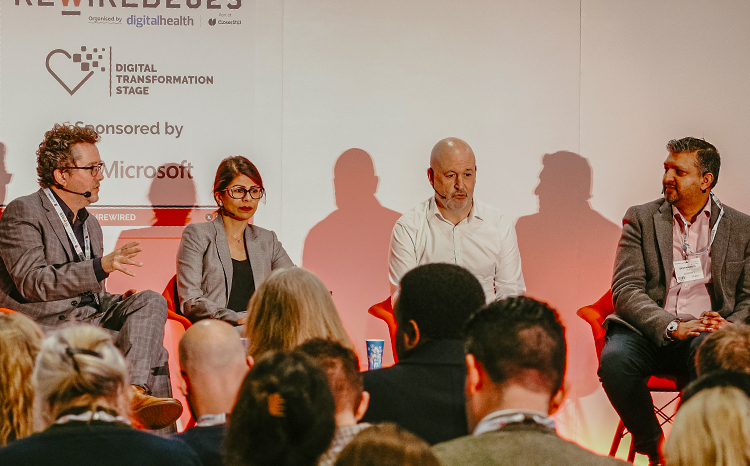European ICT market due double digit growth
- 30 October 2007
The European health ICT market is now worth an estimated 20bn annually and set for double digit growth, according to Ilias Iakovidis the European Commission’s lead on e-health.
He told delagates gathered in Vienna for the World of Health IT conference that ICT now accounts for about one per cent of healthcare budgets, “but most of that spend is still in infrastructure rather than directly health related”.
Iakovidis said that the real e-health spend – on electronic patient records, order communications systems, departmental systems and electronic prescribing – probably only represented about 20% of total ICT expenditure.
To galvinise poltical support for the spread and adoption of e-health the Commission has launched new policy initaitives to focus on how e-health can be used improve patient safety.
“Two times as many people die in hospitals due to lack of communications and information than die in road accidents in Europe every year.”
He said that there was a crisis approaching on social demographics and the healthcare pressures caused by ageing populations, that only e-health would be able to deliver. “We are an ageing society and this will speed up the crisis in healthcare delivery systems.”
Part of the problem he said is that politicians don’t like to be in the “prevention business” and want to “fight wars”.
He said for this reason, although Europe’s ageing population was the bigger issue in the medium-term, the immediate “crisis” that the European Commission was presenting to politicians was “patient safety”.
Iakoviodis said that healthcare is the biggest employer in Europe. Already accounting for 9.3% of the workforce, he said that to meet the demographic challenge, in ten years almost every new person entering the workforce would have to work in healthcare.
Despite the claims of vendors to the contrary, technology and interoperability challenges remain to be solved before the potential of e-health can be realised, “Technology is still a big problem” Iakoviodis said.
As well as becoming truly interoperable he said it was essential that systems for healthcare become “far more user firendly”, which almost all systems still weren’t. “Most systems just have lipstick of user friendliness on them”.
Iakovidis said the potential of e-health can only be realised when authorities, suppliers, doctors and managers come together and truly work in partnership. “You guys need to talk to one another.”
Iakovidis said this was partly down to the fragmentation and tribalism within different healthcare organisations and medical prifessions: “Each one is a world unto its own, so we have silos in professions and different users groups.” But the same he said, also applies to vendors.
But far from painting a gloomy picture of the European e-health market Iakovidis said the continent was the world leader. “We have made Europe the number one region in e-health deployment, but we still have a long way to go.”
“We have to do more with less, and the only way to do that is to automate.”
Based on his experience leading the Commission’s efforts on health ICT Iakovidis said that one of the common traits in countries that were in the lead, was often the frustration felt at the slow pace of change. “Frustration is actually often a good sign of progress,” he noted.
Iakovidis said that the Commission’s involvement in e-health over the past three years, fell into three distinct phases. During the 90’s the focus had been on developing health infrastructure within regions, these either being whole countries such as Slovenia or regions of countries. “We said we will try and connect everyone within a region.”
In many places after a few years to get started this had proved very successful, with Denmark being an examplar. In other regions success remains elusive. “In Greece we started in 1994 and we are still talking,” joked Iakovidis. Overall the Commission estaimates that investment in regional health ICT infrastructure has delivered savings of 1.4bn.
Starting with 20m over three years in 1989 the European Commission now spends 100m per year on funding e-health research and development and supporting deployment activities. As well as funding R&D the Commission’s number one objective is to create a thriving market in e-health that helps grow Europe’s economy.
From the end of the 90’s focus has shifted from research and development to actually getting e-health technologies deployed. Iakovidis said that the biggest single lesson on deployment is that all parties – suppliers, clinicians, managers and patients – have to be fully involved, because “any of the parties has the power to boycot e-health deployment.”
“None of the parties can do it alone, they must all talk and agree,” stressed the Commission’s e-health deputy director.
Jon Hoeksma





